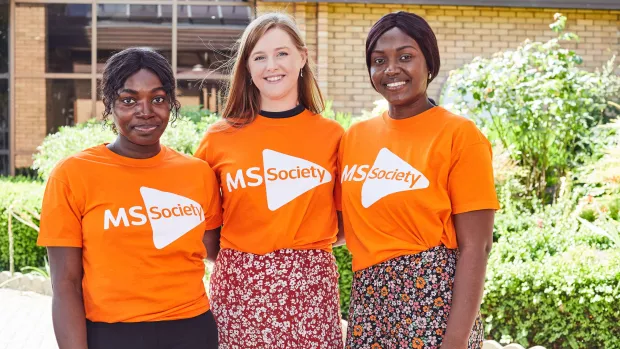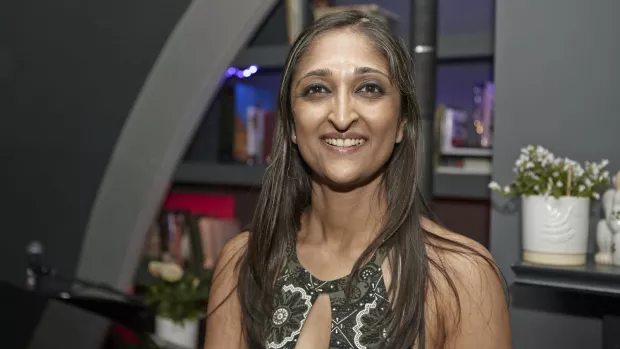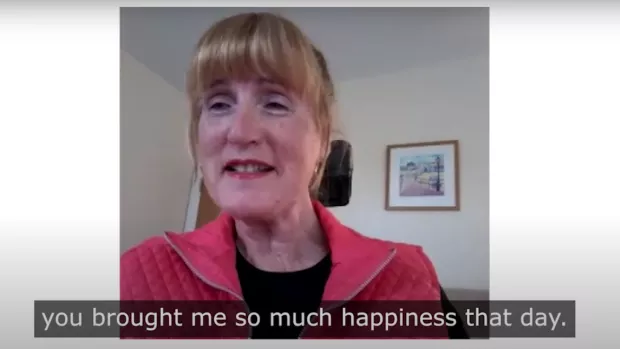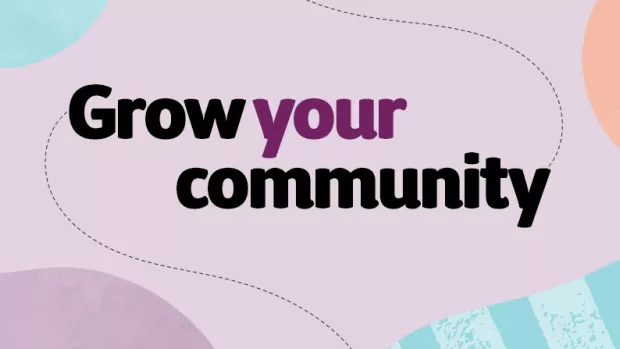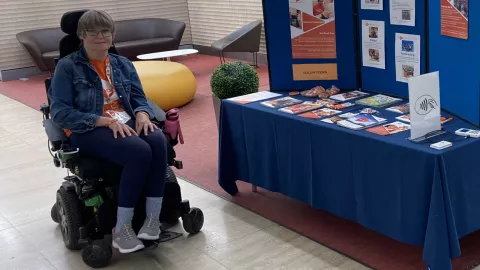
My disability is my unique selling point
Jo's been volunteering with the Milton Keynes Group for over 12 years. She tells us what she enjoys most about her roles and how she's embraced her disability.
Before I started volunteering I worked in probation. I loved the role but the work load was just too much for me given my disability. After I took early retirement on health grounds, I had the time and energy to volunteer for the first time.
I’ve now been volunteering with the Milton Keynes Group for over twelve years. As well as being part of the Coordinating Team, I’m Lead Support Volunteer (as the only Support Volunteer) and a Fundraising Volunteer.
I also lead on grant-giving for our group, which supports people with MS in financial need. Our grants make a difference to the lives of people with MS by helping to pay for things that maintain or improve their health and wellbeing.
Volunteering is flexible
As I have Cerebral palsy, I can be quite slow at getting things done. What I like about volunteering with the MS Society is there’s no one on my back to meet targets. If I’m too tired today or want to do something else today, I can.
I can manage my own time depending on how I’m feeling and it’s not just me. I’m part of a brilliant Coordinating Team and we all have that view. We’re all very supportive of each other. I’m lucky we all have the same view about giving grants to people living with MS in the Milton Keynes area. I couldn’t give grants if the team had very different views about grant giving.
What I enjoy most about my role
I particularly enjoy the grant-giving we do because you can see that immediate difference. Like when a person is given a scooter. Often, before the delivery person has even left, the recipient has already got on it and disappeared off into the distance because they haven’t left home in the last nine months. What more can you ask for than to help give someone that freedom?
I don’t know the exact figures, but when added up it was over £100,000 that I’d got people in Milton Keynes in grants over the last 12 years. And I’m passionate about Milton Keynes!
But it’s not just the big grants that we give that make a difference.
We also use some of the money we’ve fundraised to organise social events and activities, such as the ABBA Voyage concert. The idea was to get as many people as possible there who wouldn’t have been able to get there otherwise. I spent six months planning the trip for 40 people in four accessible minibuses.
There was barely a day I didn’t do anything ABBA related. I had a huge pile of paperwork. The poor woman from ABBA probably had 200 emails from me. The biggest concern was getting wheelchair spaces and that they didn’t get messed up. But I can only do these things if the money is there.
Fundraising in Milton Keynes
We fund our grants and activities and events through the group fundraising. We do get a lot of donations as we’re quite well known in the area. We have a monthly bucket collection every Saturday and Sunday after pay day, which we can raise over £1,000 doing each weekend.
Sadly, we’re short of bucket collectors at the moment. There’s only my husband (who is now the Group’s Finance Volunteer) and I who can currently do the setting up and closing down, which often clashes with us going to MK Dons games! We have a hard-core group of collectors who regularly volunteer but we’d love a few more for the rotas!
The money we have is for spending on people who need it
One thing I'm really proud of, because I’ve wanted to do it for years, is offering the CAB Priority Referral Scheme to people in our area with MS because of a legacy we’ve recently received. But it comes back to the point I made about our team agreeing on things – it's not just my choice!
As a group we think any money we have is for spending on people who need it. Quite a few groups offer the scheme but it’s quite an expensive thing to do. We pay £110 for every person we refer and in return that person gets priority services.
They’re telephoned within three working days of getting referred, and they get an immediate appointment with a qualified advisor. This covers a general check to see they are getting everything they’re entitled to, helping with benefit claims, debt advice, and advice on housing issues caused by change of circumstances, such as reducing or stopping employment on health grounds.
Connecting with people living with MS
Our two MS nurses have been in post longer than I’ve been volunteering, and we have a great relationship. They refer people to me rather than telling people to get in touch with me or our group because often people won’t refer themselves. People can be reluctant to make initial contact for many reasons. So we help to get that first step out of the way. Now I’m friends with many of the people we help.
I’ve come to see my disability as my unique selling point
I just think volunteering is a really nice thing to do. Bottom line is, while I have a disability, if I want something I can generally sort it. A lot of people in a similar situation can’t. I guess I’ve always been in a privileged position where I have skills which I can use to negotiate through the system. So if I can do it for others too, why wouldn’t I?
At school, my teachers always assumed I would work with disabled people as I have Cerebral palsy. But I refused. I told them I didn’t have a disability, I’m not disabled. Years on, I’ve come to see my disability as my unique selling point. I’ve embraced it and think it’s given me this unique experience.
I recently won an Impact Award for my volunteering. I was shocked that I’d been nominated for it, and even more shocked that I won. I simply don’t think that what I do is exceptional in any way, and certainly didn’t seem to match what others who were nominated had done. I also felt strongly that the award was for the whole Milton Keynes Group not just me, as without them, I could not do what I do.

